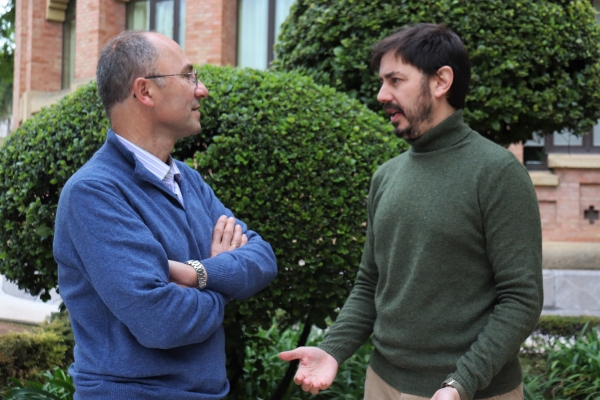We do not have to look as far away as the glaciers in Norway, the fires in Australia or the floods in Brazil to see the effects of climate change. In Spain, changes are also starting to show and they will multiply in the following years. And not only will the climate be affected, but also social and economic aspects as well.
A study by the University of Cordoba and the Centre for Research in Geospace Science (abbreviated to CICGE, at Porto University, Portugal) sought to investigate how climate change will affect one of the main economic pillars in the region of Andalusia: the olive sector. They used a tool known as a Species Distribution Model, that predicts suitable areas for the presence of a species in accordance with environmental features. First, the changes that will occur in the Andalusian climate and how they will influence the distribution of the main olive varieties grown in Andalusia were studied. Next, they estimated, province by province, what olive production will look like in the next 20, 50 and 80 years based on the change that will occur in suitable areas.
“The study shows that there will be a reduction in the amount of area available for growing most of the olive varieties studied. This will be mainly due to less rainfall and loss of soil humidity”, says Salvador Arenas Castro, CIGCE researcher, who collaborated with the University of Cordoba and is the lead author of the study.
In the case of the Nevadillo olive variety, grown in the Cordoba province part of the Sierra Morena, it is estimated that by 2100, there will no longer be any area fit for farming. Climate change will also significantly affect Manzanilla, Lechín and Picudo varieties. “If these predictive models foretell major losses in areas suitable for the most common olive varieties, local varieties will run a high risk of disappearing as they are grown in much smaller areas with more specific climate conditions and therefore, are much more vulnerable to climate change”, he warns.
In contrast, the suitable area for growing the Picual variety, the most widespread in Andalusia due to its ability to adapt to different environmental conditions, will potentially increase by 25%. This is mainly because cooler areas in the provinces of Granada and Almeria, particularly in the Alpujarra region, will become suitable for farming Picual olives once temperatures increase.
Regarding production, the provinces most affected by climate change will be Seville and Cadiz, with estimated losses of 29% for the former and 24% for the latter by 2100. For the provinces of Malaga, Cordoba and Huelva, production will decrease by 18%, 9% and 7% respectively. In the provinces of Almeria and Granada, potential olive production will increase by 13% and 6%. “This increase will occur thanks to the potential expansion of the Picual and Verdial varieties in higher areas, such as the Alpujarra [mountains]”, explains Arenas Castro. In the province of Jaen, the main olive producer, losses will not be as drastic, specifically because of the fact that the Picual variety, one of the most resistant varieties, is the most commonly grown there.
According to the researcher, it has been proven that climate change will be a very important factor in plant and animal species distribution from now on. Many studies predict that species will move towards the north and to higher areas and this research shows that olive farming is no exception. “The trouble will come when, in order to maintain the same levels of production, olive farming will have to be moved to more northern areas or areas at higher altitudes and will disturb, not only other crops, but also protected areas”, he warns.
Rafael Villar, Ecology Professor at the University of Cordoba and part of this research team, highlights the need for public authorities to consider these predictions and make long-term plans in order to prevent climate change from affecting the local economy as far as possible. “It is also necessary to raise awareness that climate change is not a myth. It will impact our standards of living and our local economy and we must do as much as we can to prevent it”, he concludes.
Salvador Arenas Castro, João F. Gonçalves, Manuel Moreno, Rafael Villar. “Projected climate changes are expected to decrease the suitability and production of olive varieties in southern Spain”. Science of the Total Evironment. DOI: 10.1016/j.scitotenv.2019.136161


